Tariq Ramadan is considered by many one of Europe’s most influential intellectuals. In this interview with Claudia Mende, the Swiss Muslim academic talks about his understanding of European citizenship, his concept of sharia, and the shortcomings of a literal interpretation of the Koran
In your current book, "Radical Reform: Islamic Ethics and Liberation", you argue that women should be more actively involved in mosques and in theological debates. Would you, then, say that a women should have the right to lead the Friday prayer?
Tariq Ramadan: We should be very cautious with raising an issue which does not have a real position of authority from within the Islamic setting. But anyone can lead the prayer, it is not something for which authority of a priest, for example, is needed. What is much more important in Islam is for a woman to be a faqi, meaning a jurist, a judge, a Muslim scholar. I would say, this is where authority has actual meaning, but leave the prayer, you can have no high knowledge in Islam, but know the Koran by heart and lead the prayer.
But it is still a highly symbolic question.
Ramadan: I don’t think so. My position in the whole controversy is that, just as the mainstream is saying, when men and women are together it is better to have a man doing it. But I also like the position of the mufti of Egypt, he has no reservation if a specific mosque is having a woman leading the prayer. But I would not push for a controversy on something, which is not the main point today. The main point today is about knowledge, about authority in anything which has to do with legal issues and judging and being involved in society.
Talking of legal issues – there is a lot of criticism of a literal understanding of the Koran. Take the example of inheritance law for women. What would your position be on that?
Ramadan: You have clear-cut verses in the Koran saying, when there is a direct affiliation, it is half of the share for the women and double for men, because this is connected to the philosophy of the family – this philosophy of Islam has to do with stability and justice in the family according to the rules. If you look at the families today you see it is not working like that, because you have many women raising their children alone and taking responsability.
It is not possible to remove these clear-cut verses from the Koran, but if you want to go for something which is connecting the reality of justice, I would prefer to say that it is a collective duty to think of ways to support these women with compensation and financial autonomy. I would go for this and would want to try to keep the justice instead of literally implementating verses, pretending faithfulness to the Koran, but in fact creating injustices on the ground.
Do you see the new understanding of such questions beyond a literal view as a task of European Islamic teaching?
Ramadan: My last book is not about European Islamic theology. It’s not European theology, it is crossing the border, it is for Muslims in the contemporary world.
But you are a European thinker.
Ramadan: But this book is not about Europe. I have been talking to scholars in North Africa, in Asia, in Malaysia, because what we need to do is to face the contemporary world. What we don’t need is thinking that what we are experiencing here hasn’t got anything to do with what Muslims are experiencing in Turkey or in Pakistan. This is wrong. Some specific issues have to be solved in our own particular societies, but we have to find a methodology for our contemporary world. We have to come together with the scholars of the text and the scholars of the context facing the challenges here in the West but also in Marocco or anywhere else.
What role can Sharia play in a modern society?
Ramadan: Sharia for me is not what the fuqaha and the jurists have defined as only Islamic law. It is much more than that, it is the way towards faithfulness. We have to think the laws in the light of this way. This Sharia way is just providing the broad visions that we have to achieve. When a German law is telling me that men and women are to treated equal before law or that you get the same salary for the same work, this is sharia for me.
This is my problem with the literalists – some Islamic scholars think sharia and the secular system are two conflicting systems. I think that this is completely wrong. On our way to faithfulness we look at the inheritence law, at justice, social dynamics and sciences. There are laws coming from non-Muslim minds that are more Islamic than laws comimg from Muslim minds in Islamic countries. I would go for what is done in the West much more than what is done in Islamic countries.
Does that mean that sharia is more of a moral guideline than a legal system?
Ramadan: It’s an ethical vision. Islamic ethics means that you have to achieve values. This is exactly what we have in our legislation in the European countries. We have a constitution, a vision and the laws trying to implement this. In Islam it is just the same. Many of these ethical achievements are just the same between Islam and the West. This is why it is wrong to oppose them.
But what about conflicting points?
Ramadan: People keep telling me there are a lot of conflicting points, but there are not. There is a public and a private domain and you can decide in your private domain to do whatever you want. For example the concept of family in Islam is traditionally a man and a woman. There is a very harsh condemnation of homosexuality by some scholars, as there is in Christianity and in Judaism. Even the Dalai Lama condemned homosexuality! But that’s not the point.
The point is that the achievement for a familiy in Islam is this and I will promote this as a vision. Should I condemn homosexuality in the name of the sharia and say you are outlaws? No, I am saying the opposite. I’m saying that this is your private life. On the public domain, however, I will try to achieve what is relevant to my values, and you are doing the same so we respect each other even though we don’t agree with our respective behaviours.
Does Islam call for a certain political system ?
Ramadan: There is no Islamic system, there are Islamic principles. Like in Christianity, in Judaism or in Buddhism you have principles of life, community and society, and on these you can build your system. So I don’t use the Islamic state as a concept. But we have to promote principles like the concept of citizenship, the process of universal suffrage, the rule of law, accountability and the separation of powers. In our countries of origin, like in Egypt and other dictatorships, we have people elected for life and there is no accountability!
What exactly is your definition of the separation of powers?
Ramadan: Religious authority cannot impose anything on the people which interferes with their conscience. The term ‘secular society’ is understood differently in the Islamic mindset than it is here in the West. Seculariation in the West meant that the Catholic Church was separated from the state in order to open a route for freedom of religion. This is a very important positive process. Secularism and Secularisation in the Islamic world has not developed out of this history, it is more damaging, connected to colonialisation and dictatorship. All the Muslim leaders who used the concept of secularisation were not democrats. So this notion is loaded as something which is alien, foreign – with a background of colonisation and no freedom. We need to find a concept where you are promoting this principle of secularisation without being rejected because the words you are using are generally not accepted.
Is the separation of state and church acceptable to you?
Ramadan: It is not only acceptable, but this was the only way which was inherent in Islam, from the very beginning in Islam. Muslim scholars were even differentiating between two fields, the field of creed and worship and, on the other side, the field of social affairs.
But this separation doesn’t exist in Islamic states.
Ramadan: These countries are not Islamic states, they are dynasties or, as in Iran, you have a religious authority on top controlling the whole system, and I am against that. The way this has to be structured is really differentiating the role of these two dimensions. The process of choosing is stopped by an authority saying this is the only norm that we have. This is problematic.
Do you agree that the people have the ultimate choice?
Ramadan: The process of the political choice should come from the people. The problem is about who is discussing the norms and in which way we are going to organize the norms and the legal apparatus. I am calling the Muslims for more creativity for the civil society to find a system which is respecting the principles but not imitating either the west nor what is happening now in Muslim countries. Euro-Islam is not me.
What is Euro-Islam then for you?
Ramadan: Euro-Islam is a term invented by Bassam Tibi and promoted by journalists. I am not thinking about something which is coming from Europe. It could come from any part in the world. We don’t have an Islamic social model for Europe. For me, three things are essential for Muslims in Europe: speaking the language, abiding by the law of the country, being loyal to our countries in Europe, because we are Europeans.
Interview: Claudia Mende
SOURCE : QUANTARA
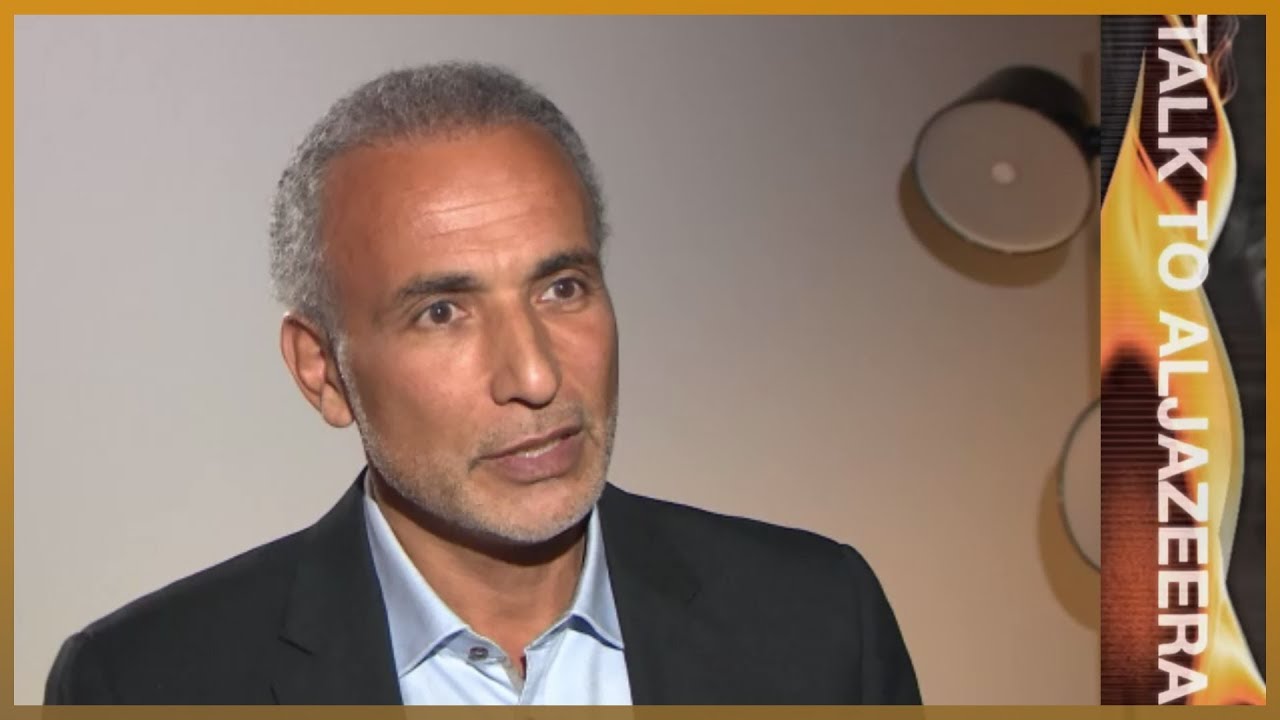

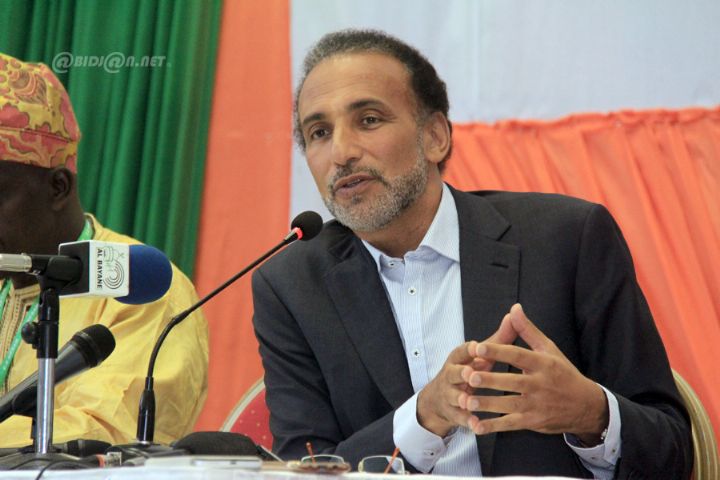
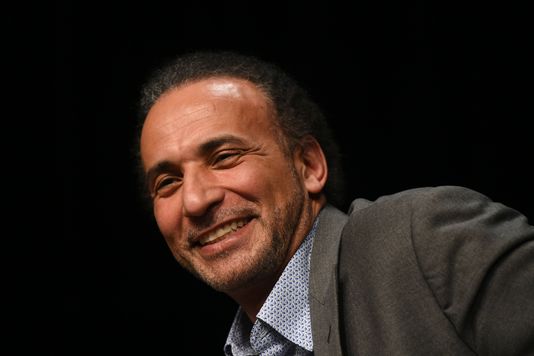
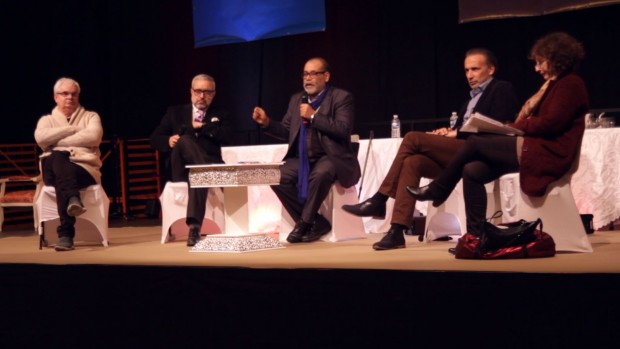
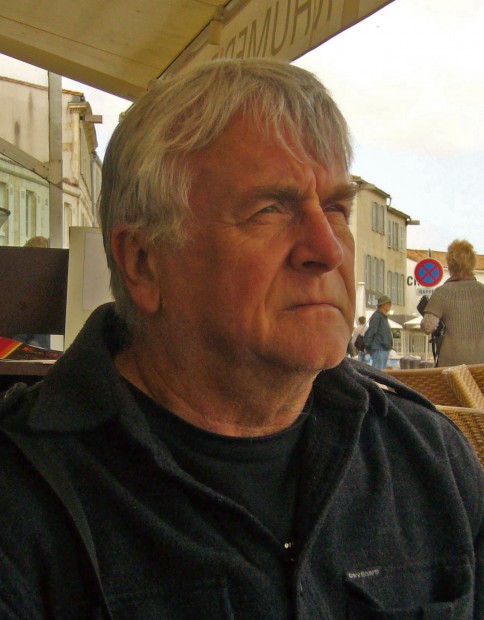



La liberté d’être ce que l’on veut être est hautement importante
mais où est le » nahy ‘anil mounkar » lorsque je suis face à un(e) homosexuel pour reprendre votre exemple??
Je me dois de le respecter c’est certain, mais est ce que ça ne pousse pas à normaliser ce qui à la base est contraire à nos valeurs?
Je me suis retrouvée face à des homosexuels à plusieur reprises et j’ai ressentie une certaine empathie à leurs égards.
Je me suis dés lors posée la question de savoir jusqu’où peut on aller dans la reconnaissance de l’autre sans tomber dans la banalisation du clairement haram?!
Merci
Tariq Ramadan dirait qu’il faut respecter les homosexuels certes.
Mais cela ne délaisse pas moins le fait que l’homosexualité est illicite en Islam.
Ils existent des associations dans le monde qui aide les homosexuels à s’assumer tels qu’ils sont… En tant que musulman, il t’es possible, par exemple, de créer une association qui a pour but d’aider les homosexuels à sortir de l’illicite pour revenir sur le droit chemin.
Voilà deux types d’associations qui ont deux buts complètement contraires mais qui peuvent exister dans les sociétés européennes comme la France.
Parce que si tu regarde dans les pays musulmans, tu trouveras des homosexuels musulmans qui souffre le martyr, ils savent que c’est mal au fond d’eux mais quand on leur demande pourquoi ils le font, ils répondent qu’ils sont comme ça.
Dans les sociétés majoritairement musulmanes, on essaie pas d’aider ces personnes à sortir des vices et péchés mais au contraire , on les ignore et parfois on est hypocrite avec eux.
Moi je crois qu’il important d’approfondir les études sur les homosexuels pour trouver d’où vient cette tendance à l’homosexualité et qu’elle est la source du problème …
En Occident, on peut faire ça, mais dans les pays arabes, il est même impossible d’y penser… La majorité des oulémas religieux n’essaient jamais à chercher le POURQUOI et pour la plus-part, ils essaient de comprendre la vie par le coran or l’inverse est bien plus juste.
Pas d’accord sur le point concernant l’Iran. C’est vrai qu’il existe des manquements et des efforts se font tous les jours pour aller de l’avant mais l’Iran est le meilleur du pire qu’on connait dans les pays majoritairement musulmans. L’autorite religieuse a laquelle Tariq fait reference a certes un pouvoir mais au fond il joue le role de Conseil Constitutionnel, et il est lui meme suceptible d’etre demis meme si c’est tres rare et cela peut provoquer une crise constitutionnelle sans precedent. Il est garant des valeurs contestees et contestables mais celles ci reviennent toujours au peuple.
Le merite de Khomeyni est au moins d’avoir essaye d’elaborer une soi disante doctrine dans un contexte pareil et non faire du suivisme des systemes existants dans des pays majoritairement non musulmans. Le chemin reste long.
A parrt cela, je suis l’evolution de la pensee de Tariq depuis plus de 10 ans maintenant, il a bcp ameliorer meme si des fois il y a du flou(sur certaines questions ).
in Qantara website, i found this catastrophic error:
يعارض الأكاديمي الإسلامي والمفكر طارق رمضان في هذا الحوار الذي أجرته معه كلاوديا مينده «أنظمة السلطة الاستبدادية في الإسلام،» كما يدعو إلى فهم معاصر للإسلام يقوم على أساس الفصل بين الدين والدولة .
T.Ramadan has never said « dictatorships in islam ». as it was written in the arabic version of the interview.
he said « dictatorships in islamic majority countries »
Salam,
It’s probably a Netanyahou’s translation
I completely agree. 😀